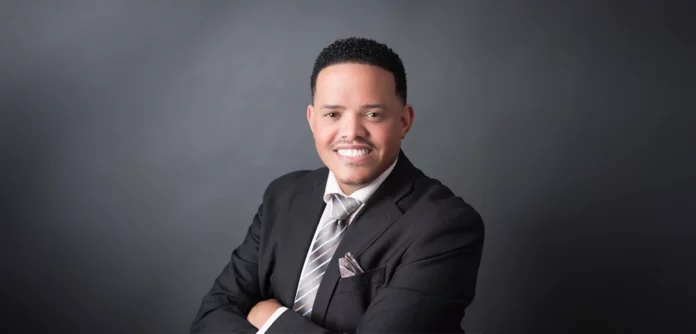
Mayor Cherelle Parker has continued to announce new appointments. One recent appointment was that of Will García, a man who, though young, has already spent 20 years doing commendable work on the streets of Philadelphia. In conversation with Impacto, García shared a bit of his history, his beliefs, and projects.
Will García is a man of faith and has worked in academia at Esperanza for two decades. At the same time, he has been involved in many other fronts of community engagement and activism in defense of the development of Hispanic communities.
García was born and raised in North Philadelphia to Puerto Rican parents who arrived in the 1960s seeking a better future. «They got married here, had ten children, and I am one of them,» he relates. «I am a product of the Philadelphia School District. I went to Taylor Elementary Public School, Roberto Clemente Middle School, and Central High School. From there, I went on to college. My father was the only breadwinner for the family, so I had to self-finance my education.» Will is completing his Bachelor of Science at Cairn University. «I will continue with my master’s because I believe in education.»
He will soon pursue a master’s degree focusing on the Bible and Ministry. “I was under the pastorate of Reverend Alberto Filomeno, a pioneering pastor who worked for over 50 years here in Philadelphia. He was my pastor and mentor,» he recalls. «Then I refocused on my studies and on continuing to work. We established Ebenezer Church, which was in Frankford for ten years. Now, I am at San Felipe Church alongside Pastor Efraín Coto, also a pioneer. Together, we work to address the needs of the Latino community here in Kensington.»
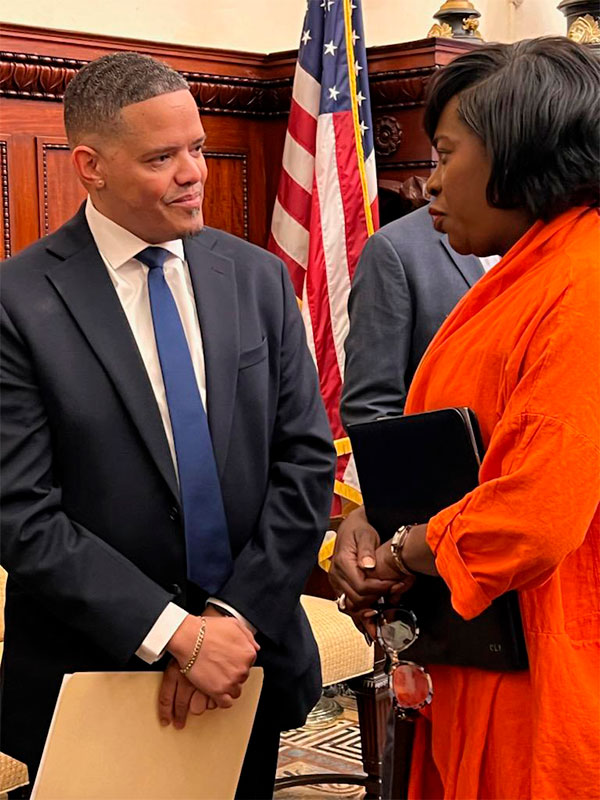
Will started by helping kids who are learning to speak English as a second language and who come from very vulnerable backgrounds. “I identified with them because of my own experience. My parents insisted that we speak Spanish at home, but then, at school, everything was in English, and I know the difficulties that exist and the prejudices that could exist when English is your second language.”
Nowadays, the advantages of being bilingual have been proven. A few days ago, Secretary of Education Miguel Cardona stated that “being bilingual is a superpower.” Will confirms this idea and its importance here in Philadelphia, where Hispanics already make up almost 15% of the city’s population.
“It is quite a significant number, and I believe that we need to create more visibility and not feel ashamed of our heritage, our language, and our culture. We are part of this city, and we must focus on giving more visibility to our Latino roots,” Will points out.
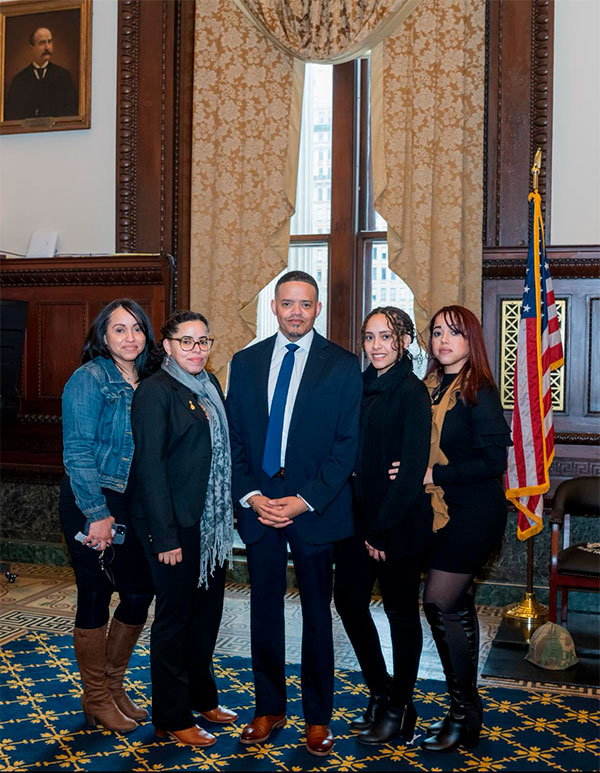
Many believe that Latino identity comes mainly from culture, music, food, and traditions; but for Will, there is also another component: faith. “Yes, faith is very important; it defines us as people, and as Latino people. That is a dimension that I have loved at Esperanza, the mission of the school; and then, we want to equip our young people with both languages, English and Spanish, which are key to their success.”
He has witnessed the difficult reality of poor neighborhoods with discouraged and broken people. “We live in communities plagued by drugs and many other negative things, such as the urban conditions of our neighborhoods that are still developing. For example, I live in what people call ‘The Badlands’, but when the ‘developers’ arrive, they find a lot of value in what we see as poor, for them they are gold mines.”
«That’s why I believe we need a change of mindset; to change the mentality of our people to change our ideas and our communities; and for that, we have to start with ourselves; each one changes their mindset,» Will says. «We are in places that seem poor because we have decided to live like this. We are going to change this; we are going to clean it up, we are going to make an effort to make our area clean and safe; so that the resources that the city has allocated for this initiative reach us, and so that we can also enjoy clean and safe neighborhoods.»
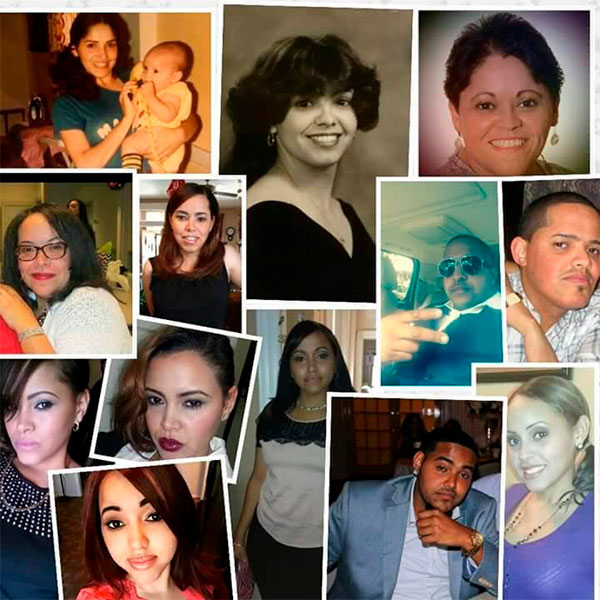
Will recalls that in the 1980s, when he was a child, everyone ran freely around the neighborhoods, and the neighbors knew each other. «We all took care of each other. There was that sense of community, and I don’t know how or when that link was lost.»
Will believes that language may have played a role because the elders spoke more Spanish, and the youth spoke more English. «We must create bridges of communication, get to know each other, and get involved with each other. When my grandmother was alive, she attended the senior center at Fifth and Allegheny, and they often had programs where young people would get together with the elderly; they would do programs and parade together; for example, in the Puerto Rican parade, there was a collaboration of generations, and I believe that we have to heal that gap.»
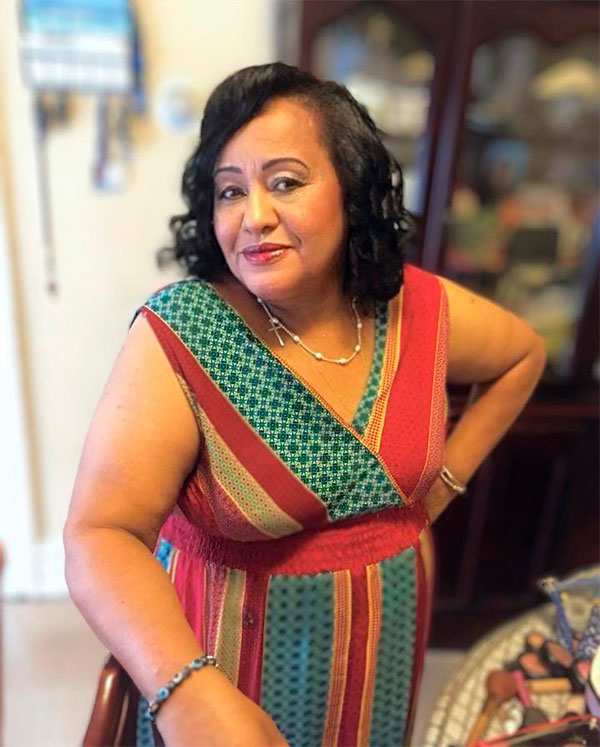
He sees it as a loss that the communities once centered in the Spring Garden Fairmount area have moved more toward the north over the years. «And what happened to Spring Garden now? Look, it’s a gold mine. And many have already moved, and we can’t enjoy these nice neighborhoods. It feels like we’re being left out of all the good things happening in the city, and that is not the case; everything that happens in this city has to do with us, and we can also have good neighborhoods, helped by the resources of the city. In the end, we also pay our taxes.»
The new mayor wants to make the Latino community visible, and that’s why she created this office because she understands that Latinos are an integral part of this city. «The Latino Engagement Office is unprecedented; it is the first time it has been created, and my appointment was unexpected. The opportunity came to me through Brenda Ríos, associate deputy mayor for intergovernmental and legislative affairs. They chose me among several candidates after seeing the years I have been working with the community, not only in church and faith issues but also in education, in assisting parents in finding a school and informing them about the resources the city has available,» says Will.
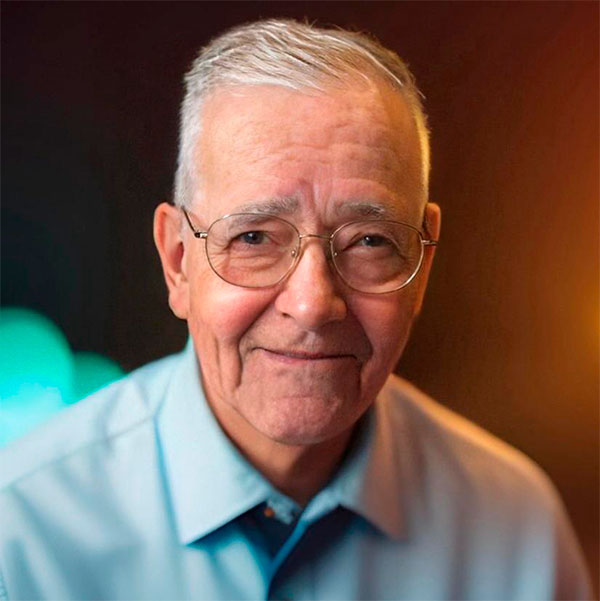
At first, he felt a little intimidated because he did not have a political background; however, he later saw it as an opportunity to continue doing the same work, but on a much larger scale to serve the people. «And it is a source of pride for me, being a young man who lived here in North Philadelphia and went to public school here.»
His teachers inspired him: «They pushed me to go to Central High School, and it was difficult. It was a culture shock because I had to learn to function with all those different people and languages, but there I understood that Philadelphia is much bigger than its northern part; it is much bigger than my community, and there are many more Latinos around the city that I can help from this position.»
Will García has the chance to leave an indelible mark through his work at the Latino Engagement Office in Philadelphia. His background speaks for itself in terms of all that he can contribute to the city’s Hispanic community, laying the foundation for greater participation and inclusion.






